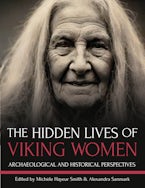Paradigm Found brings together papers by renowned researchers from across Europe, Asia and America to discuss a selection of pressing issues in current archaeological theory and method. The book also reviews the effects and potential of various theoretical stances in the context of prehistoric archaeology.
The 23 papers provide a discussion of the issues currently re-appearing in the focal point of theoretical debates in archaeology such as the role of the discipline in the present-day society, problems of interpretation in archaeology, approaches to the study of social evolution, as well as current insights into issues in classification and construction of typologies. Taking a fresh, and often provocative, look at the challenges contemporary archaeology is facing, the contributors evaluate the effects of past developments and discuss the impact they are likely to have on future directions in archaeology as an internationally connected discipline. In its final part the volume reflects on current thinking on prehistory, using case-studies from a number of European regions and the Mediterranean, from the Neolithic to the Roman Period.
The volume represents a tribute to the lifetime achievements of Professor Evžen Neustupný, a distinguished Czech archaeologist who contributed to the advancement of prehistoric studies in Europe and to archaeological theory and method in particular.
1. Introduction: Evžen Neustupný - Paradigm found, J. Turek, K. Kristiansen & L. Šmejda
Part One – Contemporary discourses in archaeological theory
2. Scientia, society, and polydactyl knowledge: Archaeology as a creative science, T. Darvill
3. Beyond Theoretical Archaeology: a manifesto for reconstructing interpretation in archaeology, J. Bintliff
4. The Environment of Social Evolution, J. C. Barrett
5. Conceptual crossroads: community and society in prehistory, L. Šmejda & M. Baumanová
6. Archaeologies of Space: an inquiry into modes of existence of Xscapes, F. Criado-Boado
7. Paradigm Lost’ – on the state of typology within archaeological theory, M. L. S. Sørensen
8. The Demons of Comparison: thoughts on archaeological classification and classificatory terminology, T. Taylor
Part Two – Past and Future Directions
9. The “Annales” School, “La Nouvelle Histoire” and Polish Archaeology, S. Tabaczyński
10. Binford in the Balkans: Introduction of theoretical archaeology in Slovenia and countries of former Yugoslavia (1980s), P. Novaković
11. Mainstream and minority archaeologies. The case of the beginnings of Polish bioarchaeology, A. Marciniak
12. How we have come to do archaeology the way(s) we do: a meta-critique of current archaeological discursive formation, K. Mizoguchi
13. Which archaeology the modern world needs?, Z. Kobyliński
14. Paradigm Lost: The Rise, Fall and Eventual Recovery of Paradigms in Archaeology, E. B. W. Zubrow
15. Archaeology and politics in the 21st century: Still Faustian, but not much of a bargain, B. Arnold
Part Three – Thinking Prehistory
16. Prehistoric Mind in Context: an essay on possible roots of Ancient Egyptian civilisation, M. Bárta
17. Eight Million Neolithic Europeans: Social Demography and Social Archaeology on the Scope of Change – from the Near East to Scandinavia, J. Müller
18. Threads of Neolithic household cloth production at Bronocice, M. L. Pipes, J. Kruk & S. Milisauskas
19. Neolithic versus Bronze Age social formations: a political economy approach, K. Kristiansen & T. Earle
20. The idea of the Eneolithic, S. Kadrow
21. Lost and Found Paradigms. Creation of the Beaker World, J. Turek
22. Categories of Settlement Discard, M. Kuna
23. Brotherhoods & Cooperations: notes on "chiefdoms" and Tacitus' Germania, K. Randsborg
Kristian Kristiansen is a pre-eminent archaeologist. He is Professor of Archaeology in the Department of Historical Studies at the University of Gothenburg, Sweden and a prolific author. His main research interests are in the European Bronze Age, archaeological theory and archaeological heritage.
Ladislav Šmejda & Jan Turek are both lecturers in the Department of Archaeology at the University of Western Bohemia, Plzen Czech Republic, specialising in Neolithic and Eneolithic archaeology and prehistoric burial practices.
Jan Turek is a Czech research archaeologist in the Center for Theoretical Study, Joint Research Institute of Charles University & the Czech Academy of Sciences, Prague. He studied in Prague, Bratislava and Sheffield. He is a specialist in the Neolithic and Chalcolithic periods of Europe, especially in regards to the reconstruction of social and gender structure and symbolic systems and monumentality of prehistoric communities.












